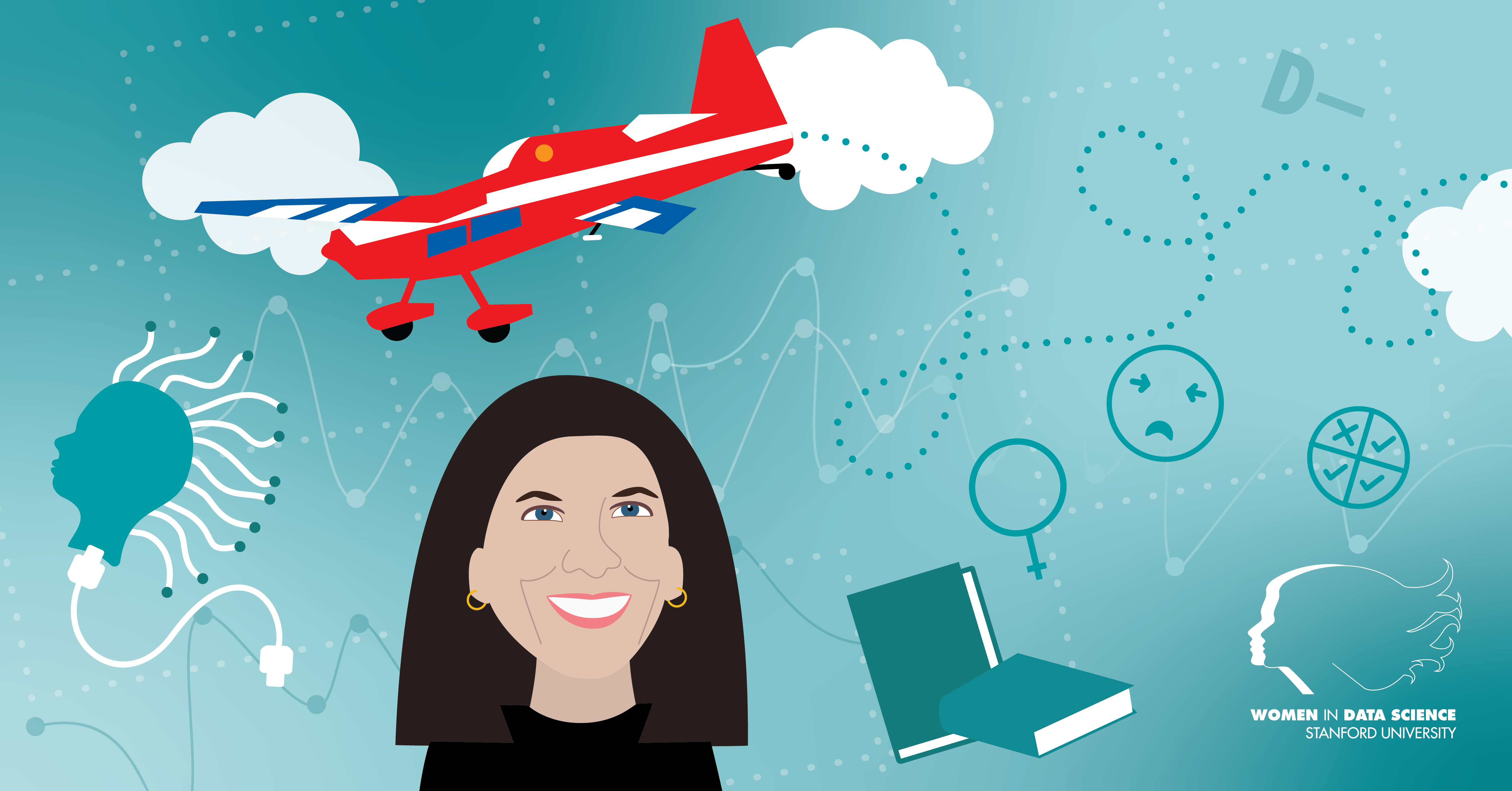May 6, 2021

On the “Women in Data Science” podcast, Cecilia Aragon, a professor in the in the Department of Human Centered Design & Engineering, explains how overcoming her fears to become an aerobatic pilot propelled her forward in her career as a data scientist, professor, and author.
HCDE Professor Cecilia Aragon is a data scientist, author and champion aerobatic pilot. In Stanford University's Women in Data Science podcast, Aragon explains how learning to fly gave her the confidence to pursue her career in human-centered data science and as an author.
Listen to the 30 minute conversation here:
Aragon's book, Flying Free: My Victory Over Fear to Become the First Latina Pilot on the US Aerobatic Team, is the story of how a timid daughter of immigrants who had terrible phobias overcame her fears to become a champion pilot. Learning to fly and excelling at it helped her overcome emotional barriers from childhood when she was fearful and doubted her abilities.
In her mid-20s, she was pursuing her PhD and felt a lack of confidence, so dropped out of the program. “It wasn't that I had failed life, but I was living a very narrow life. I was just saying no to everything that might be exciting or interesting. And I saw my life stretching in front of me as incredibly narrow. A colleague offered me a ride in a small airplane…It suddenly occurred to me that living life too safely was dangerous for my spirit.” So, she took her first ride in the small plane and knew that she was going to learn how to fly.
She was very fearful as she was learning to fly and realized it was the same feeling she had in grad school when she didn't think she knew enough to be there. She practiced a discipline of constant learning, trying, making mistakes, relearning, and trying again until you get it right. She builds in safety protocols to anticipate potential problems, and most of all, never gives up.
She applies these same techniques in data science. As director of the Human-Centered Data Science Lab, Cecilia explains that every algorithm you write has potential human impact. A small error can be magnified and can have dramatic effects for thousands or millions of people.
She has co-authored a book called Human Centered Data Science: An Introduction to help experienced and new data scientists learn how to plan for and manage the unintended consequences from the automated collection, analysis, and distribution of very large data sets. There are human decisions at every stage of the work of data science, and we discuss how bias and inequality may result from these choices and what to do to help prevent this. She says we need to put human needs and ethics at the center of data science and place data in its social context.
